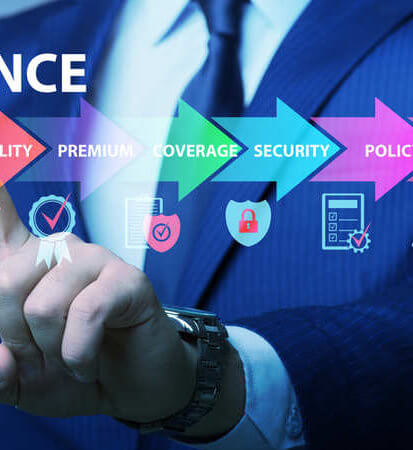Tips
10 Corporate Travel Management Hacks Every Business Should Know in 2025

Navigating corporate travel can often be a daunting task, but implementing effective travel management hacks can lead to significant savings for businesses. By leveraging the right tools and practices, companies can enhance their travel processes, allowing for more efficient itinerary planning and budgeting. These travel management hacks are aimed at helping organizations streamline operations while ensuring employee satisfaction.
Businesses that prioritize a structured approach to travel can harness technology and centralize their systems for better control. Not only does this lead to decreased costs, but it also improves employee experience and safety during travel. Engaging with industry vendors and utilizing mobile management apps are just a few strategies that can significantly impact both finances and logistics.
By adopting these 10 travel management hacks, businesses can save thousands while fostering a more organized and safer travel environment for employees.
Key Takeaways
- Strategic planning and tools can lead to substantial cost reductions.
- Centralized systems enhance travel management and employee safety.
- Developing strong vendor relationships improves travel efficiency.
1. Leverage Technology for Efficient Planning
Travel management can be streamlined significantly by using technology. Companies can utilize various tools as their best travel management hacks to simplify the itinerary planning process and reduce costs.
1. Trip Management Software:
Platforms provided by the top travel management companies allow users to manage travel plans from one central hub. They can book flights, hotels, and transportation.
2. Mobile Apps:
Applications such as Kayak or Skyscanner provide real-time updates and notifications. They help travelers remain informed about flight delays or gate changes.
3. Collaboration Tools:
Using tools like Slack or Microsoft Teams can facilitate communication among team members. Quick updates about travel arrangements ensure everyone is on the same page. Clooper allows you to integrate with over 450 applications and more.
4. Automated Expense Tracking:
Solutions like Expensify or Rydoo automate the expense report process. This reduces the time spent on manual entries and increases accuracy.
This approach can save both time and money during the travel planning process. Embracing these innovations ensures that organizations stay agile in today’s fast-paced environment.
2. Optimize Budget With Strategic Booking Techniques
Implementing strategic booking techniques can significantly enhance a company’s travel budget. By leveraging the right tools and strategies, organizations can maximize savings while ensuring employee travel efficiency.
Early Bird Discounts and Flexible Date Searches
Booking travel in advance often leads to substantial savings through early bird discounts. Airlines and hotel chains typically offer lower rates for bookings made several weeks or months ahead.
Being flexible with travel dates can also yield cost-effective options. Adjusting departure and return dates by even a day or two might unlock cheaper fares. For instance, flying mid-week tends to be less expensive than weekend travel.
Travelers should take advantage of fare alerts and set notifications on travel platforms. This ensures they are notified of any price drops or special offers on their preferred routes.
Utilizing Price Comparison Tools
Price comparison tools are essential for finding the best deals available. Websites and apps like Kayak, Skyscanner, and Google Flights allow users to compare prices from multiple airlines and hotels in one search.
These platforms often provide filters to narrow down options based on criteria such as price, duration, or specific amenities. This empowers travelers to make informed decisions based on their budget and preferences.
Regularly checking these tools can help businesses stay updated on the latest fare trends, leading to more budget-conscious travel planning. Using these tools effectively can result in significant savings over time.
Rewards Programs and Frequent Flyer Miles
Joining rewards programs can be a crucial strategy for reducing travel costs. Many airlines and hotel chains offer loyalty programs that allow travelers to earn points or miles for every booking.
Accumulated points can be redeemed for discounts, free flights, or upgrades, leading to cost savings in the long run. Companies should encourage employees to register for these programs to maximize benefits.
Frequent flyer miles, in particular, can significantly lower travel expenses. By being strategic about bookings, businesses can leverage miles for future travel needs, creating a more efficient travel budget.
3. Implemente a Centralized Travel Management System
A centralized travel management system can significantly streamline business travel processes. It consolidates travel booking, expense reporting, and policy compliance, providing a single platform for all travel-related activities.
Benefits of a Centralized System:
- Cost Savings: Reduces spending by tracking expenses and identifying unnecessary costs.
- Improved Compliance: Ensures adherence to company travel policies, minimizing unauthorized expenses.
- Enhanced Reporting: Offers real-time data analytics for informed decision-making.
When implementing such a system, businesses should consider the following steps:
- Identify Needs: Assess current travel processes to determine requirements.
- Choose Technology: Select a platform that integrates with existing tools and meets business needs.
- Engage Employees: Provide training sessions for users to familiarize them with the system.
Key Features to Look For:
- User-Friendly Interface: Ensures ease of use for all employees.
- Integration Capabilities: Allows linkage with other business systems like expense management.
- Mobile Access: Provides flexibility for employees traveling away from the office.
Maintaining an effective travel management system involves regular assessments and updates. Listening to user feedback can be one of the best travel management hacks that will help improve your system’s effectiveness and encourage compliance.
4. Streamline Expense Tracking and Reporting
Effective expense tracking and reporting can significantly enhance a business’s financial management. By implementing advanced tools and processes, companies can reduce errors and save time.
Automated Expense Management Solutions
Automated expense management software allows businesses to track spending in real-time. These solutions enable employees to submit expenses easily through mobile apps, streamlining the reporting process.
Benefits include:
- Real-Time Tracking: Immediate visibility into expenses helps control budgets.
- Error Reduction: Automation minimizes manual entry errors.
- Receipt Management: Optical Character Recognition (OCR) can digitize receipts and sync with accounts.
Utilizing automated systems also facilitates faster approval workflows. Managers can review and approve expenses from anywhere, fostering quicker reimbursements and enhanced employee satisfaction.
Integration with Corporate Accounting Systems
Integrating expense management solutions with corporate accounting systems provides a seamless flow of financial data. This connection ensures that expense reports directly feed into the general ledger, reducing manual bookkeeping efforts.
Key advantages include:
- Unified Data: Centralized information enhances accuracy.
- Time Savings: Automatic updates decrease the time spent on reconciling different platforms.
- Improved Analytics: Businesses can analyze spending patterns for better financial decisions.
By ensuring compatibility with existing accounting software, companies can create a cohesive financial ecosystem that supports strategic planning and budgeting.
5. Policy Development for Business Travel
Effective policy development for business travel is one of the best travel management hacks to manage costs and ensure compliance. Organizations should clearly define their travel and expense guidelines while ensuring these policies adapt to changing needs.
Setting Clear Travel and Expense Policies
A well-defined travel policy serves as a roadmap for employees. It should include:
- Booking Procedures: Outline methods and platforms for booking travel accommodations. Specify preferred vendors and any necessary approvals.
- Expense Limits: Set clear spending limits for accommodation, meals, and transportation. This reduces confusion and encourages responsible spending.
- Reimbursement Process: Clearly state the steps for submitting expenses, including documentation requirements and timelines for reimbursement.
Providing examples and templates can reinforce understanding. Consistency helps in minimizing potential disputes and misunderstandings.
Regular Review and Adjustment of Policies
Travel policies should not remain static; they require regular evaluation. Key practices include:
- Periodic Reviews: Schedule yearly reviews to align travel policies with business objectives, market trends, and employee feedback.
- Feedback Mechanisms: Implement systems for employees to provide feedback on policies. This can include surveys or meetings for policy discussion.
- Adaptation to Technology: Stay updated with advancements in booking and travel management tools. Policies must reflect current technology to streamline processes.
Adjustments ensure the policy remains relevant and beneficial for both the company and its employees while helping to control travel costs effectively.
6. Prioritize Employee Safety and Wellbeing
Ensuring employee safety and wellbeing during business travel is crucial. Organizations must implement effective strategies to protect their travelers and provide necessary support.
Health and Travel Insurance Plans
Companies should invest in comprehensive health and travel insurance plans. These plans cover emergencies, medical expenses, and trip cancellations.
Benefits of a solid insurance policy include:
- Emergency Medical Coverage: This protects against unexpected health issues during travel.
- Evacuation Services: Provides transport to safety in case of emergencies.
- Accidental Death and Dismemberment Insurance: Offers critical benefits for severe incidents.
Employers must clearly communicate these offerings. Providing information about how employees can access their benefits will empower them to seek help when necessary.
24/7 Support for Travelers
Access to round-the-clock support is essential for managing travel-related emergencies. A dedicated support line allows travelers to seek assistance at any time.
Considerations for effective support include:
- Travel Assistance Services: Offer real-time help with rebooking flights or finding medical assistance.
- Emergency Contact Protocols: Establish procedures for employees to follow in case of an incident.
- Mobile Apps: Utilize technology to provide instant support and information.
Having a reliable support system reassures travelers they are not alone. It enhances their confidence while traveling for business, contributing to safer and more successful trips.
7. Build Relationships with Travel Vendors
Establishing strong connections with travel vendors is essential for effective travel management. These relationships can lead to better rates, enhanced service quality, and priority support during emergencies.
To build a successful partnership, consider the following strategies:
- Open Communication: Maintain regular contact. Share feedback and express any specific needs that arise.
- Negotiate Early: Approach vendors ahead of time with your requirements. This can lead to more accommodating terms.
- Foster Trust: Be reliable in payments and commitments. This builds credibility and strengthens the relationship.
Businesses can benefit from vendor relationships in several ways:
| Benefit | Description |
|---|---|
| Cost Savings | Negotiated rates can lower travel expenses. |
| Customized Services | Vendors may offer tailored services based on business needs. |
| Enhanced Support | Strong relationships can result in prioritized assistance. |
Engaging with vendors also involves attending industry events. These gatherings allow for networking and establishing a personal rapport.
Recognizing good service from vendors can further enhance relationships. A simple thank-you or a referral bolsters goodwill.
Investing time in these relationships pays off in the long run. It translates to a more streamlined travel experience and potential savings.
8. Utilize Mobile Apps for On-The-Go Management
Mobile apps play a crucial role in streamlining travel management for businesses. They offer convenient access to important information and tools anytime, anywhere.
Key benefits of using mobile apps include:
- Real-time updates: Travelers receive instant notifications about flight changes or delays.
- Expense tracking: Apps allow users to log expenses on the go, streamlining reimbursement processes.
- Itinerary management: Users can organize travel plans in one place, making it easy to access schedules.
Popular mobile travel management apps include:
| App Name | Features |
|---|---|
| TripIt | Itinerary organization |
| Concur | Expense management |
| Kayak | Flight and hotel booking |
Integrating mobile apps can lead to significant time savings. They simplify communication between team members, ensuring everyone stays informed.
Additionally, many apps offer integrations with existing tools. This helps businesses maintain consistent workflows and reduces the learning curve for employees.
By adopting a mobile-first approach, companies can improve overall productivity during travel. Ensuring employees have the right tools enhances their experience and contributes to better outcomes for the organization.
9. Evaluate Travel Impact and Environmental Footprint
Evaluating travel impact involves analyzing both the financial and environmental consequences of business trips. Companies should assess how travel choices affect their carbon footprint and overall sustainability.
Key areas to consider include:
- Transportation Mode: Different modes of transport have varied emissions. For instance, trains generally have a lower environmental impact compared to planes.
- Distance and Frequency: Frequent short trips can be more damaging than fewer long-distance travels. Analyzing travel patterns helps identify opportunities for reductions.
- Accommodation: Choosing eco-friendly hotels can greatly reduce a company’s overall environmental impact.
To quantify these aspects, businesses can utilize tools like carbon calculators. These tools can provide estimates based on distance traveled and mode of transportation.
Strategies to Minimize Impact:
- Encourage Virtual Meetings: Reducing the need for travel by utilizing video conferencing can significantly lower emissions.
- Implement a Travel Policy: Establish guidelines that prioritize sustainable travel options.
- Offset Carbon Emissions: Investing in environmental projects can help companies offset their travel-related emissions.
By adopting these strategies, businesses can not only save costs but also contribute positively to the environment. Tracking and evaluating travel practices fosters a culture of sustainability within the organization.
10. Train Employees on Effective Travel Practices
Training employees on effective travel practices can significantly enhance a company’s travel management. Employees should understand guidelines for booking, budgeting, and reporting.
Key Areas of Focus:
- Booking Procedures:
- Use designated travel booking platforms.
- Familiarize staff with policies for flight and hotel selections.
- Expense Management:
- Educate employees on allowable expenses.
- Implement tools for tracking spending in real time.
- Travel Safety:
- Highlight the importance of safeguarding personal information.
- Provide resources for emergencies while traveling.
Recommended Training Methods:
- Workshops: Conduct hands-on sessions to simulate travel planning.
- Online Courses: Offer modules that employees can complete at their convenience.
- Interactive Seminars: Utilize guest speakers with travel expertise.
Feedback and Assessment:
- Regularly collect feedback on training effectiveness.
- Conduct assessments to measure understanding and retention of policies.
Investing in training enables employees to travel efficiently and responsibly, reducing costs and enhancing productivity. A well-informed team navigates travel complexities with confidence.
Frequently Asked Questions
What are the best strategies for managing travel expenses in a business?
Managing travel expenses effectively requires setting a budget for each trip, monitoring spending, and renegotiating contracts with suppliers. Implementing a travel policy that outlines acceptable expenses can also help maintain control. Regular audits can identify patterns and areas for potential savings.
How can companies ensure policy compliance when employees book travel?
Companies can ensure compliance by providing a clear travel policy and using centralized booking systems. Training sessions for employees on these policies can enhance understanding and adherence. Regularly reviewing bookings against the policy also allows for adjustments and reinforcement of compliance.
What tools or apps are essential for efficient business travel management?
Key tools include travel booking platforms that integrate with expense management systems. Tools for itinerary management, travel alerts, and expense reporting can streamline the travel process. Additionally, mobile apps that provide real-time updates and support can enhance the travel experience for employees which is one of many travel management hacks not everyone knows about.
How can businesses leverage frequent flyer programs to reduce travel costs?
Businesses can enroll in frequent flyer programs for their employees to earn points on flights and accommodations. Accumulating these points can lead to discounts on future travel, upgrades, and free flights. Tracking employee travel activity can maximize the benefits gained from these loyalty programs.
What are the most effective ways to streamline the travel booking process for employees?
Implementing a user-friendly travel management system is a top travel management hacks that will simplify the booking process. Offering pre-approved travel options reduces the time spent on decisions. Allowing employees to book travel within set parameters can expedite planning while ensuring policy compliance.
How can a business effectively monitor and analyze travel data to optimize spending?
Collecting and analyzing travel data allows businesses to identify spending patterns and areas for savings. Regular reporting can highlight trends and inform future travel policies. Utilizing analysis tools helps in making data-driven decisions to optimize travel budgets and negotiate better rates.




